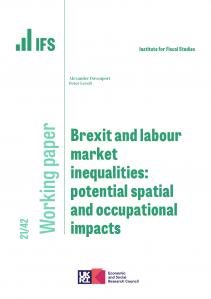The funding and financial powers of the devolved governments of Scotland, Wales and Northern Ireland are governed by ‘fiscal frameworks’ that link changes in funding to changes in spending in England, and put strict limits and controls on borrowing. These features led to concerns at the outset of the COVID-19 crisis that the devolved governments could find themselves with insufficient UK government funding if hit particularly hard by the pandemic, and unable to raise more themselves.
As it turns out, the devolved governments’ funding arrangements have largely coped with the COVID-19 crisis. But this is the result of a combination of luck, the huge sums of money provided by the UK government to address the crisis in England, and ad-hoc bypassing of the normal rules of the frameworks. And there have been some tricky moments, notably at the beginning of the crisis, when the devolved governments had to wait for confirmation of funding following the announcements of new English spending, and in the Autumn as the second wave hit.
This report is the first in a series over the next year, by researchers at the IFS, Fraser of Allander Institute (Strathclyde University) and University of Stirling, that will examine the fiscal framework's of the UK's devolved governments.
Its aims are to highlight the funding issues that could have arisen as a result of the COVID-19 pandemic, assess whether they have in fact arisen, and how they have been addressed. The paper also looks forward to some emerging and imminent issues in devolved government funding, including the planned review of the Scottish fiscal framework later in 2021, and the changes to funding arrangements that may arise from the new Internal Market Act and the replacement of EU structural funds post-Brexit.
Over the next 12 months our project will consider what changes to the devolved governments fiscal frameworks could help make them more robust and fit for purpose. In doing this, it will consider the implications for England, and aim to feed into both an official independent review due to commence later this year in Scotland, and the new Northern Ireland Fiscal Commission.









